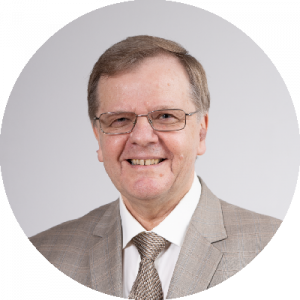Home > Mobility and health – regional services in the enlarged EU
Контролеры:
,

Academic degree and current position in TSI: Professor, Dr.sc.ing. Dr.hab.sc.ing, leading researcher of the Engineering Faculty, Director of PhD Programme “Telematics and Logistics”.
Previous Experience: Founder and President of Transport and Telecommunication Institute for over 15 years, Vice-rector for Research and Development Affairs for more than 10 years
Membership: Member of the Joint OECD/ITF Transport Research Committee (OECD – Organization for Economic Co-operation and Development, ITF – International Transport Forum), Member of Institute of Electrical and Electronics Engineers (IEEE), Corresponding Member of Latvian Academy of Science, President of Latvian Transport Development and Education Association, President of Latvian Operations Research Society, Editor-in-Chief of the Journal «Transport and Telecommunication», Member of the board of the Journals “Transport”, “Technological and Economic Development”, “Journal of Aviation Technology and Engineering” etc.
Academic experience: Author of more than 600 academic and research publications, author of 68 patents. Expert of the Latvian Council of Science in Civil and Transport Engineering, Chairman of promotion council for PhD degree in Civil and Transport Engineering, Chairman of Professor Council in Telematics and Logistics.
Teaching at post- and graduate level: 45 years of pedagogical experience in university; courses: Research Methodology (PhD programme); New Trends of Telematics and Logistics Development (PhD programme), Research Methodology (MSc programme), Theory of Systems and System Analysis (MSc programme), Transport Policy (MSc programme), Intelligent Transport Systems (MSc programme), Reliability Engineering (BSc programme) etc.
Participation in projects: has participated in 37 international projects (in 26 projects as national coordinator of the projects) and 26 Latvian research projects and programs (in 23 as head of the projects) within the frame of COST Activities, Horizon 2020, Framework Programs, INTERREG etc.
Research Interests: Transport Telematics and Logistics, Smart Cities, Analysis and Modelling of Transport Systems, Intelligent Transport Systems, Reliability of Electronics Systems, Internet of Things, Cyber-Physical Systems, Information Technology Applications, Electronics and Telecommunication, Decision Support Systems, Avionics, Air Traffic Control Systems and others.
Supervised Doctoral, Master and Bachelor Theses: Supervisor of 9 PhD theses and more than 200 Master and Bachelor theses.
Awards: 2 Gold and 5 Silver Medals of International Research and Innovation Exhibition of Innovators (1985-1990); Honorary title “Latvian Honored Inventor”, Latvian Parliament (1989); Award for Innovative Excellence in Teaching, Learning and Technology, USA (1998); Award and memorial medal for outstanding research in computer science and informatics, Latvian Academy of Sciences (2001); Award and memorial medal for outstanding performance of research in air navigation, communication and radar technology, Latvian Academy of Sciences (2002); Certificate of Recognition as a significant contribution to the research and educational work in the transport, logistics and information technology, as well as on the international success in science, Cabinet of Ministers of the Republic of Latvia (2014); Certificate of Honor of the Latvian Academy of Sciences for research in the field of transport and logistics (2019).

The barriers that national borders impose on balanced and sustainable development within the EU shall be overcome by transnational co-operation on topics of mutual interest, starting from exchange of experience and knowledge in many fields of regional development. The enlargement of the EU generates more trade, more transnational transport of goods and persons, a more dynamic development of tourism as well as a growing demand for more effective co-operation and exchange on policies and measures. National and regional governments within the EU must anticipate these developments. New policies and services are needed. http://www.hanse-passage.net/hansepassage/index.html
The main objective is to help policy-makers and other participants at the regional level to develop regional policy strategies responding the challenges in two relevant task fields: local transport and stationary medical care. In both task fields we will initiate a dialog between local and regional policy-makers, experts and other participants.
The project ‘Mobility and Health’ contributes to the Cluster A within the Regional Framework Operation ‘Hanse-Passage’ mainly by creating new approaches for improved public service provision at the local and regional level and by encouraging the co-operation between the different political levels and between the different regions.
The project will try to pay major attention to the specific political and cultural background in each region, including the role of the various constitutional constellations. Therefore the project should consider the responsibilities of the local and regional level, the interplay between the local authorities, the region, the national state and the European Union, the tension between economic efficiency and fulfilment of public service obligations, the participation of the citizen. Simultaneously the project deals with new forms and possibilities of co-operation between the public and the private sector.
The project intends to initiate an exchange of practical experiences in overcoming comparable challenges. It will generate a mutual learning process based on the existing policies strategies. In this context the following main questions were adressed to compare the local and regional situation in this task field:
The project includes the provision of an updated view of the different forms that regions and local authorities have adopted to handle the implementation of strategic decision, the evolutionary stages of the their legal and organisational settings, focussing as well as on the need to improve performance of local transport. The following questions will support the analysis of the different systems:
Comparing the different systems in the public transport sector and creating innovative solutions to improve the effectiveness of the regions policies and their instruments are one of the main aspects of the project.
On April 6th / 7th 2006, the Project A04 had its Kick Off Meeting in Bremen.
The objectives of this meeting were to develop the working periode April 2006 — September 2007, to prepare the time schedule, to organize the three workshops in Rouen, Sheffield and Hanover and to review the project financies.